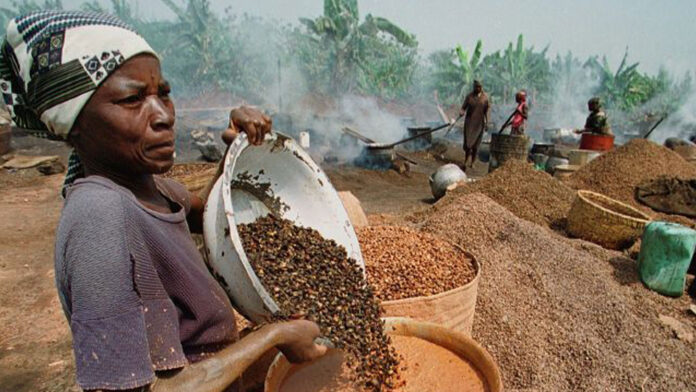Palm oil plantations in Liberia are billed as bringing jobs and development but actually leave locals poorer, said a Liberian lawyer who won the prestigious Goldman Environmental Prize on Monday.
The U.S.-based Goldman Environmental Foundation gives the prize – often known as the Green Nobel – to six grassroots activists each year for efforts to protect the environment, often at their own risk.
Alfred Brownell was awarded for his successful campaign to protect more than 500,000 acres of tropical forest from palm oil development in the West African country, after which he was forced to flee Liberia in fear for his life.
He now lives in the United States but hopes to return to continue his work as palm oil development continues to displace farmers without giving them an alternative means to earn a living, he said.
“These forests mean a lot to Liberia. The communities that we supported who live in these areas… it is their home and their resources and their farms,” said Brownell, 53.
“Instead of trying to empower them, (palm oil) causes the impoverishment of those communities. So this is not development at all,” he told the Thomson Reuters Foundation.
Sometimes palm oil companies offer jobs but not enough for the number of people who lose their land, he said.
Liberians have protested land grabs by foreign palm oil companies for over a decade, since the former government gave out nearly half the nation’s territory in resource concessions.
The World Bank has credited these policies with transforming Liberia into a promising place for investors after a long civil war but activists say local communities rarely benefit.
“We’re talking about lots of communities seeing their customary lands go away, lands they depend upon on a daily basis for their livelihoods,” said Patrick Kipalu, Africa Programme coordinator for Rights and Resources Initiative, a global network that advocates for indigenous peoples’ land rights.
“It’s so negative compared to the economic opportunities that those companies can bring,” Kipalu said.
Liberian authorities could not immediately be reached for comment.
Brownell helped community members file a complaint in 2012, alleging environmental damage and human rights violations by Golden Veroleum Liberia (GVL), a Southeast Asia-based agro-industrial company that had signed a deal with the state to lease 543,600 acres of land for palm oil production.
An industry body responded by halting GVL’s work on most of the land – a decision that was upheld last year after a legal battle.
Protests by community members led to violent clashes in 2015 and Brownell said that his home was attacked and family members arrested – leading him to flee.
GVL, still active in Liberia, said in an email that it acknowledged past mistakes and that it created a sustainability action plan in 2018 to resolve grievances with communities.




